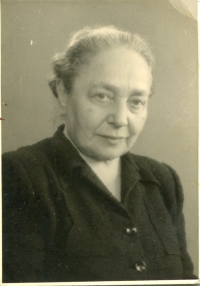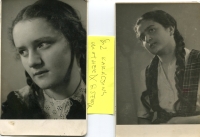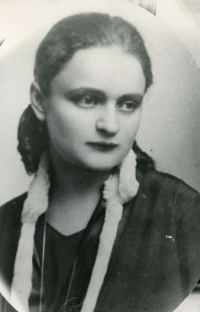One time, all of a sudden, two Russian officers came to the basement the grandmother knew from many novels, that if they were happy to meet someone, they had to be offered salt and bread. All night, the grandparents talked in French with the Russian officers in the basement

Stáhnout obrázek
Mió Arató was born on March 4th, 1930. She lived with her parents and sister until 1942. Later the parents got divorced and she lived with her mother and grandparents. During the 2nd World War Mió and her family helps many jews to hide in their apartments in downtown Budapest. Mió’s family had taken real risks in these situations. Fake papers were also made in the apartment, which the children had to dirt down to make them look used. Many stayed in the apartment for a day or so, all of which posed a risk to the family. In total, about 25 people had turned up and stayed with the family. After the war Mió become a teacher and worked as it for more than 35 years. After her retirement she continued to work as a teacher. Mió passed away at the age of 91 in 2022.


